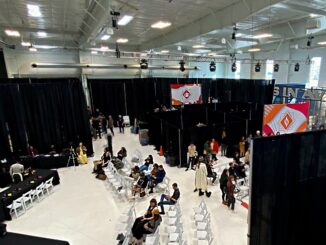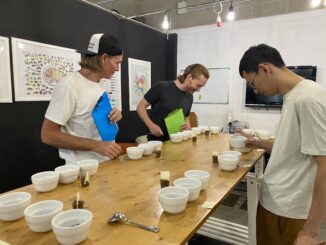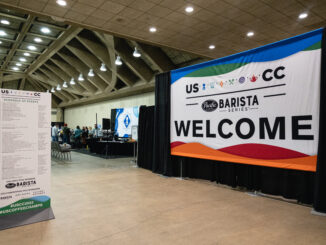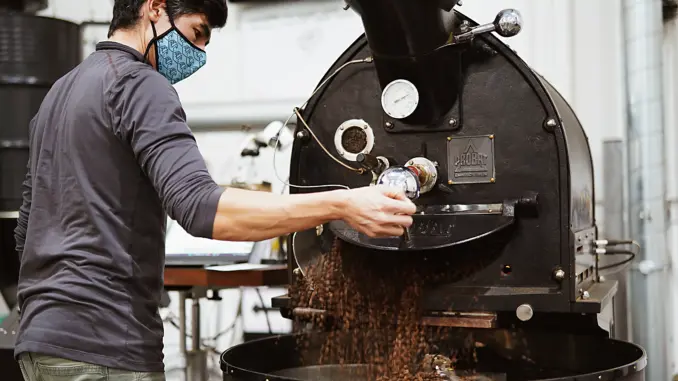
From cycling coach to coffee roaster, Andrew Coe has achieved great success; today we learn more about him.
BY VASILEIA FANARIOTI
SENIOR ONLINE CORRESPONDENT
Photos courtesy of Andrew Coe
Coffee roasting is a combination of both art and science. It takes an incredible amount of skill, precision, and practice to create those delicious flavors we all love. That’s why it’s always so inspiring to talk to people who have achieved excellence in the field.
We recently had the pleasure of speaking with Andrew Coe, the 2023 U.S. Roaster Champion, about his experience both in the roasting world and as a cycling coach. Andrew sources and roasts coffee for Elevator Coffee, and he shared with us his insights on the roasting process and his experience competing in coffee competitions.
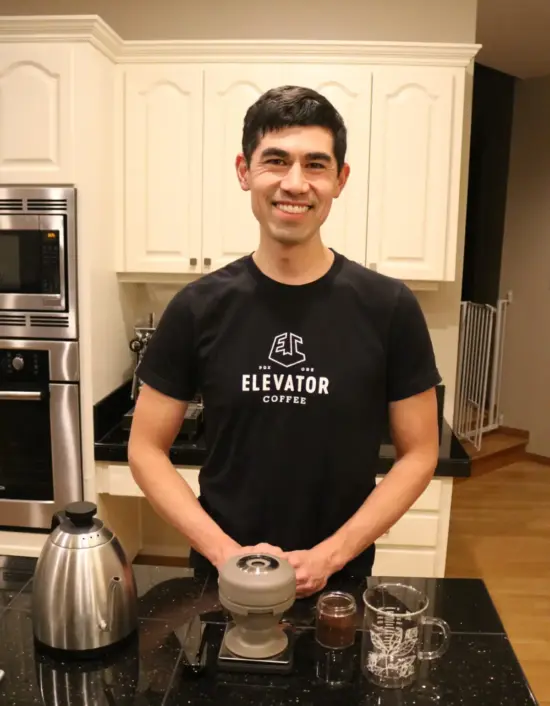
Can you share a few defining moments of your relationship with coffee growing up?
My family didn’t really drink coffee, so I never really had it growing up. I do remember probably the first cup of coffee I had was in high school right before basketball practice, and I had the best shooting day of my life (laughs). I also remember my grandfather, who was apparently quite the coffee connoisseur, being excited about a coffee he had brought back from Brazil. I really started drinking coffee to survive grad school.
What inspired you to get into coffee roasting?
I worked in coffee for a little while at Tully’s in Seattle, then moved to Kansas City, Mo. This was in 2007 and there were a few really great roasters in town, but not nearly like today, so it was a long trek across town to get beans. But I had read about roasting on a popcorn popper on Sweet Maria’s, so I got an old Poppery II 1200w machine and started roasting 1lb at a time. I eventually got a Behmor 1600 to roast a little more coffee at once.
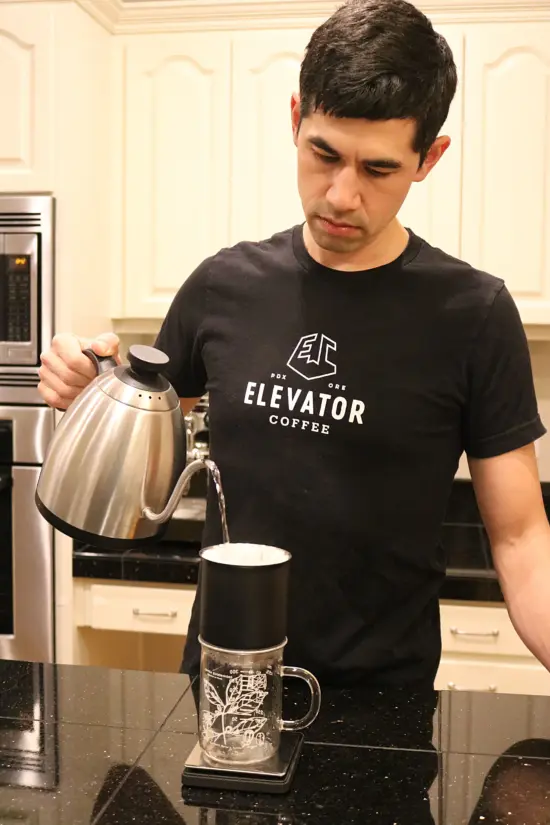
Eventually we moved to Portland, and I started to look around for opportunities to work in coffee again. I joined Elevator as the barista for our former Cafe & Commons location, which was across the street from the Buckman Coffee Factory co-roasting space. They held a roasting competition, and I entered and won. That launched Elevator Coffee as a roasting business.
What specifically do you consider when selecting and roasting coffee for Elevator Coffee?
We work with only a handful of importers that we trust to source coffee ethically and pay fair wages. Green-coffee buying has gotten weird during COVID times, but we always try to make cupping decisions blind and with a reasonable variety of options. Then we consider costs and other metrics like water data to see how much or how little we think we can commit to. Our menu consists of several fixed items (for blend components) and a few wild-card spots to fill with whatever the most exciting coffees we can find at the moment.
Can you tell us about your academic background and how it has informed your approach to coffee roasting?
I have a master’s degree in Mathematics and also worked in engineering building transportation models. I think this largely informs how I roast, and specifically, how I gather data from roasting. I’ve got a giant spreadsheet that has almost every roast I’ve ever done. That is helpful because then I can rely on having decent notes instead of having to remember every great (and awful) roast I’ve done.
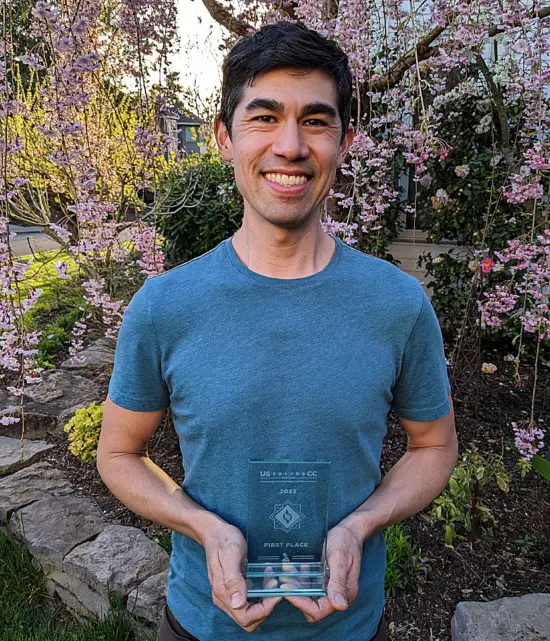
How did you prepare for the U.S. Roaster Championship?
I competed in the finals in 2022 and finished fifth, so that was particularly helpful to get ready for this season, since I knew the judging panel would be similar and had some helpful notes from last year on my scoresheets.
We have a Stronghold S7 roaster (the machine we use in the finals) here in Portland at the Mark Spencer Hotel. I did a few practice sessions there last year, and did some more this year to help me get familiar with the machine. It was circumstantial, but I had also roasted some coffee from the Democratic Republic of Congo fairly recently, so when that origin was announced as the compulsory coffee, I was excited because I had already developed a roast profile for a coffee in that country and approximate growing area.
Check out part two of this interview here.
ABOUT THE AUTHOR
Vasileia Fanarioti (she/her) is a senior online correspondent for Barista Magazine and a freelance copywriter and editor with a primary focus on the coffee niche. She has also been a volunteer copywriter for the I’M NOT A BARISTA NPO, providing content to help educate people about baristas and their work. You can follow her adventures at thewanderingbean.net.


